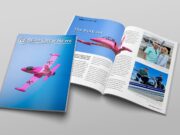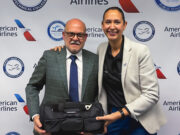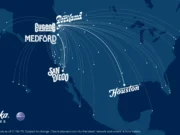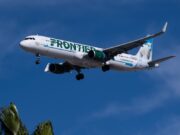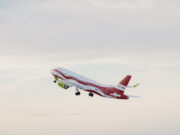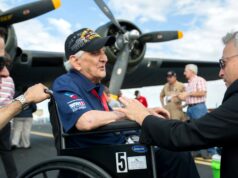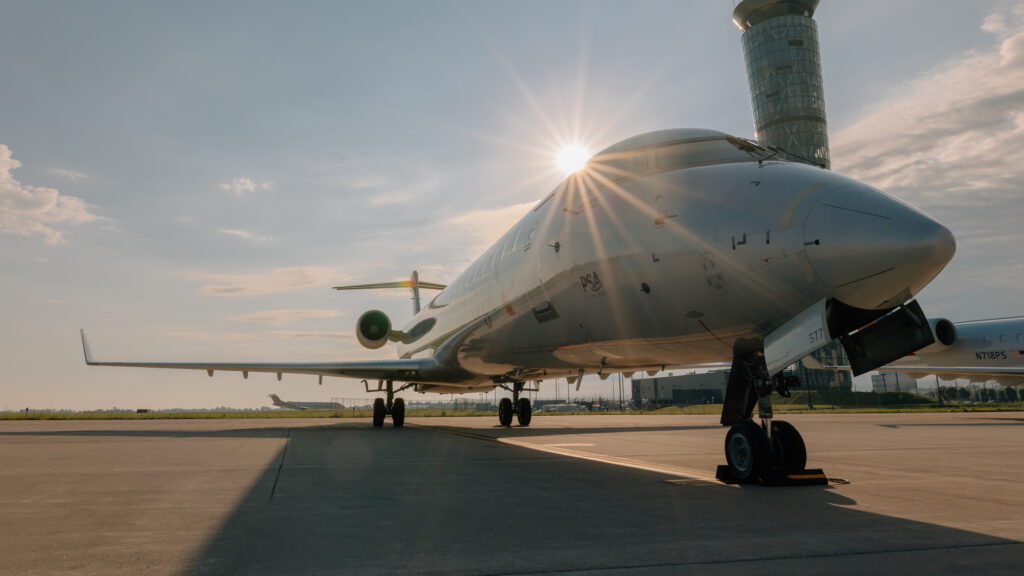
A premier training program
PSA is committed to setting the standard for flight training and building a robust training program that prepares pilots for all situations to operate safely and reliably.
In early 2023, First Officer Patrick Wangui was faced with a situation that all pilots must be prepared for, but hope will never happen. His response proved to be a testament to the training he received at PSA and his professionalism to ensure the safety of the crew and customers onboard.
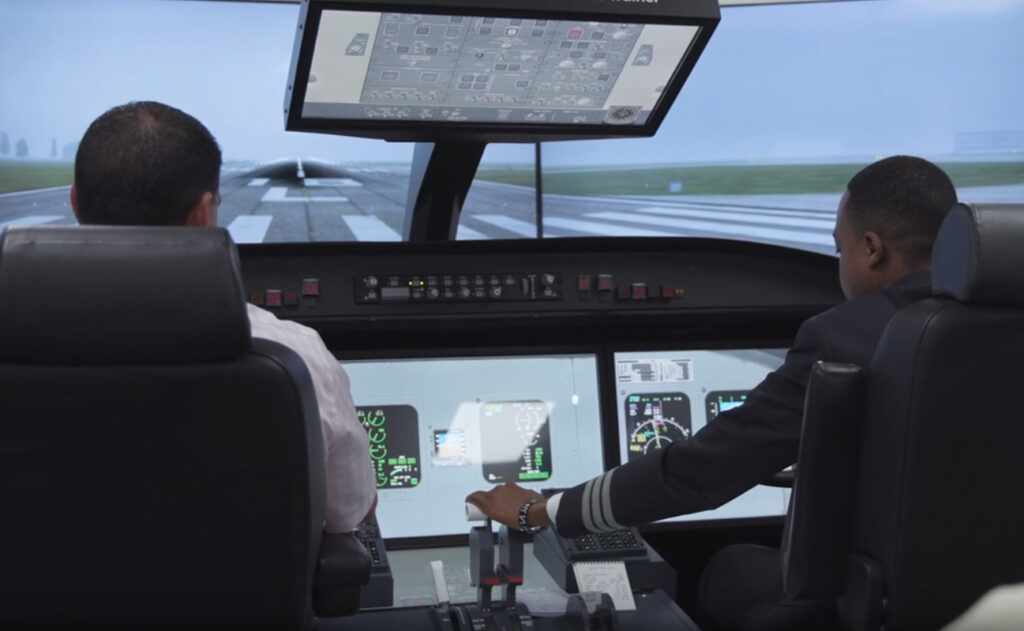
Sitting in the right seat during one of his first flights after completing IOE (initial operating experience), Patrick was thrust into a complicated and difficult scenario. The flight was on final approach to a Category II landing in extremely low visibility into Charlotte. The captain then experienced a medical emergency, becoming incapacitated. When Patrick recognized what was happening, he immediately took control of the aircraft, notified ATC of the medical emergency, and called for a go-around. Patrick reconfigured the aircraft and performed a CAT II approach (required to be flown by the captain except in scenarios exactly like this) and landed safely. Once on the ground, he taxied the aircraft to a safe spot off the runway, where emergency crews could quickly assist the captain.
PSA’s training program is built to give pilots the tools they need to instinctively execute the proper procedures during an emergency. Vice President of Flight Operations Keith Stamper said, “Patrick’s quick instincts and actions are a testament to the dedication he put into his training and to all those who have devoted their careers to teaching and growing others’ skills.”
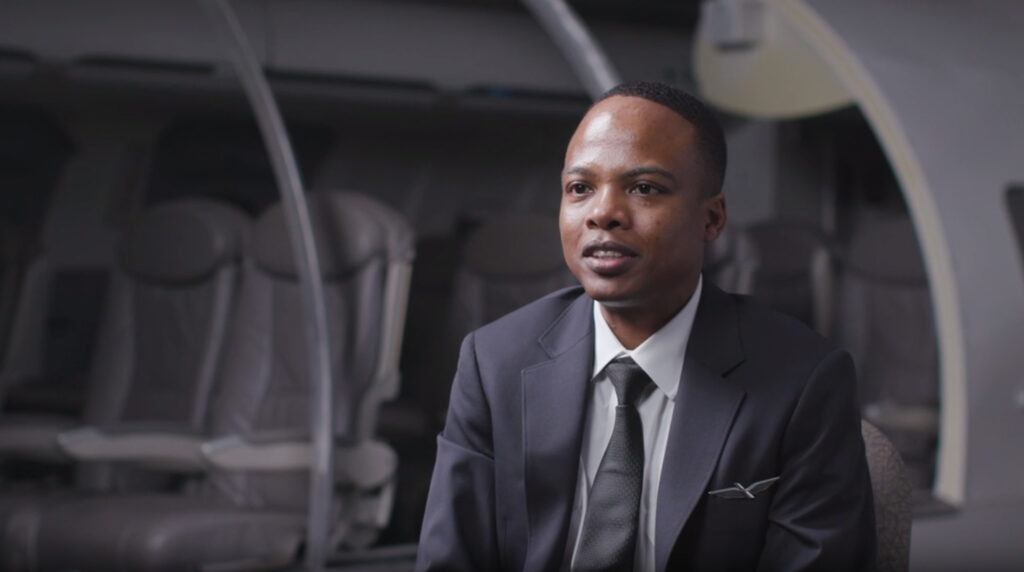
Following the emergency event, Patrick, a native of Kenya, talked about his journey into the aviation industry. It started when he saw a helicopter as a child. He said he knew he wanted to be a pilot. His path to achieving his dream was long and arduous, with stops and restarts due to the cost of flight school. He worked as a DJ and delivered medical supplies to save enough money to continue his schooling. He said despite the challenges, he knew he had to go back to finish flight school. “I didn’t see myself doing anything else,” he said. Once back in school, Patrick said he learned how to face adversity through teaching people of different backgrounds and adjusting to the different calls.
It took more than 12 years for him to earn the certificates and ratings he needed to become a commercial pilot. When it came time to choose an airline to work for, Patrick said he chose PSA because of the culture and commitment to diversity. It looked like a company that would welcome him, he said.
Patrick is now applying his life lessons, skillset, and giving back to the training team that served him by expanding into a part-time instructor role.
An industry-leading approach to solving the captain shortage
In addition to a premier training program, PSA has been at the forefront of innovate ideas to ensure that regional pilots receive industry-leading pay and lifestyle benefits.
Last fall, PSA announced a partnership with two major cargo carriers to attract qualified pilots with an industry-leading compensation package.
Most recently, PSA extended their industry-leading bonus offers for qualified experienced pilots. High-Experience First Officer (500 FAR 121 hours) or a Direct-Entry Captain (950 FAR 121 hours) making the transition to PSA can receive up to $200,000 in bonuses for their experience if they commit to PSA by Feb. 29 and start class with PSA by March 31.
Post-pandemic, the aviation industry has been experiencing a rapid rebound in demand for air travel, and American Airlines and its wholly-owned subsidiaries are committed to being at the forefront of meeting that demand. Growing the pilot workforce at PSA and building a strong pipeline to strengthen American’s network is critical to industry recovery.
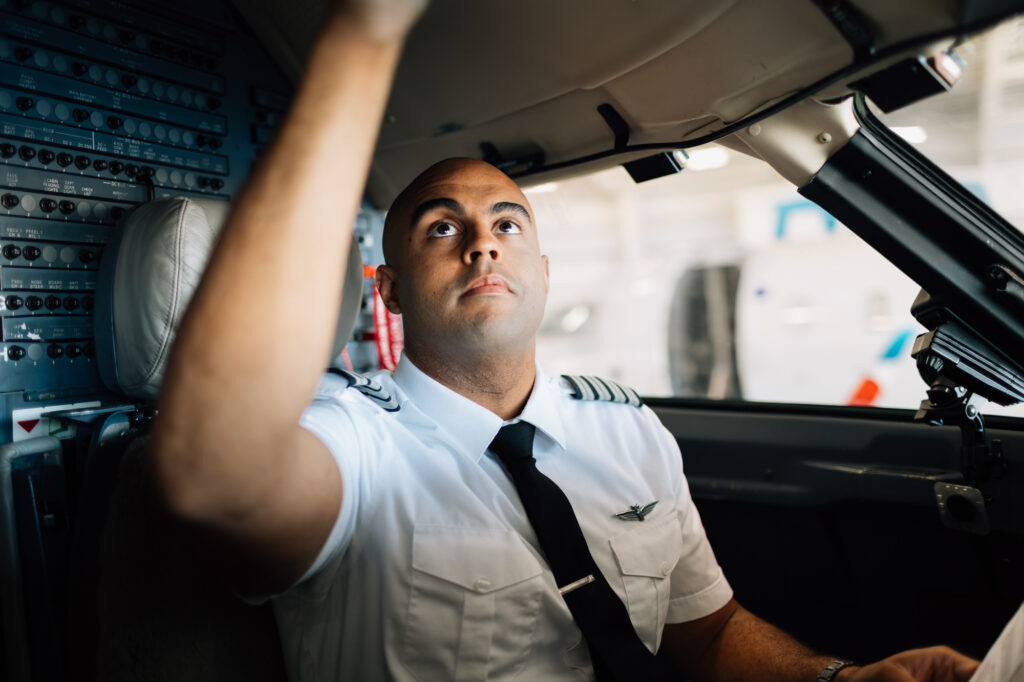
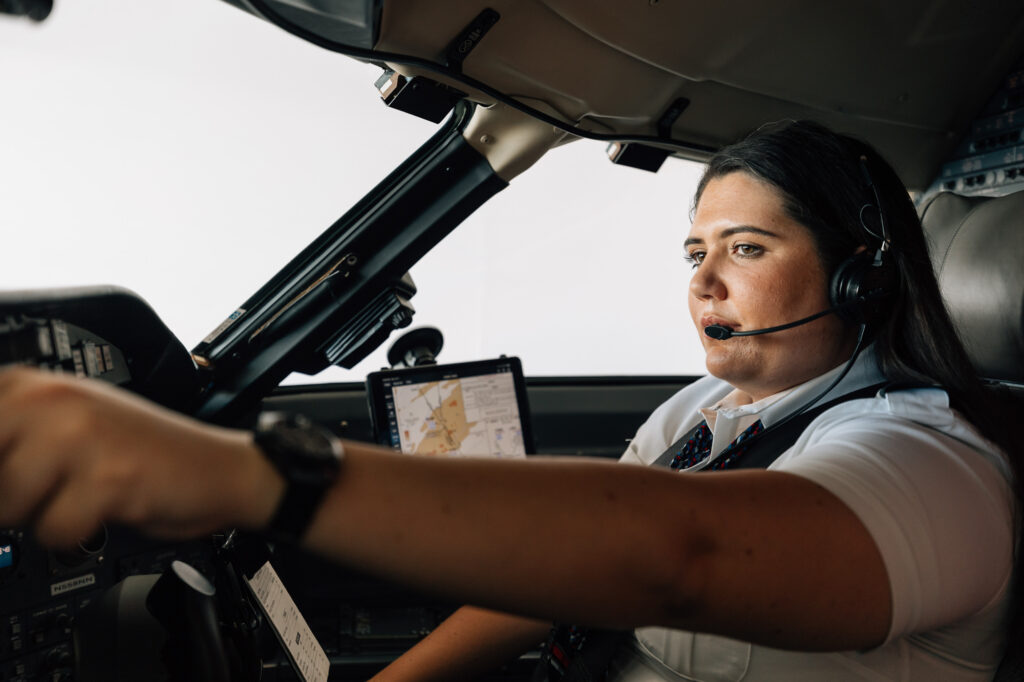
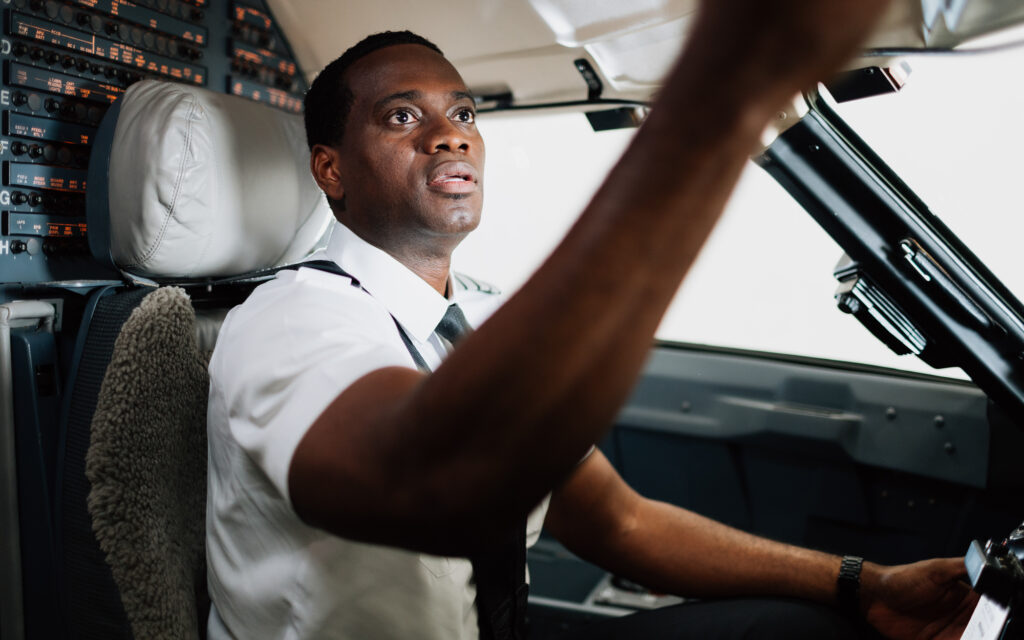
Your PSA career
Whether coming in as an experienced pilot or first officer, you can expect growth opportunities beyond flying the line.
PSA is also committed to developing the next generation of pilots through our training curriculum with roles such as line -check airmen, simulator instructors, proficiency-check airmen, and aircrew-program designees. These roles include increased compensation offers such as a 200% pay credit for line-check airmen.
Outside the training organization, pilots at PSA can share their passion with the next generation of aviators through our Cadet Mentor Program. This program partners current PSA pilots with members of our Cadet Program, which is open to students at all colleges, universities and flight schools, offering tuition and training reimbursement, and helps them prepare for their training for a career as a commercial airline pilot.
As part of our recruiting team, PSA pilots can become Pilot Ambassadors and mentors, helping to bring new pilot team members onboard, assist in interviews and attend events as brand representatives of PSA.
In addition to flight career opportunities, PSA employs team members in inflight, maintenance and engineering, operations and control, and other corporate positions.
A vision for the future
In June 2023, PSA announced the acquisition of seven CRJ 900 aircraft, bringing PSA’s current fleet count to 141. The addition of these aircraft highlights American Airlines’ continued investment in PSA and an opportunity to further modernize the fleet and put an emphasis on American’s premium regional service offerings.
Recently, PSA also launched the Preferential Bidding System (PBS) for pilots. This new scheduling process will improve scheduling transparency and quality of life for team members.
Outside the flight deck, PSA shared the addition of their ninth maintenance base in Dallas, Texas at Dallas Fort Worth International Airport (DFW). This line-maintenance base will be instrumental in enhancing PSA’s reliability to the operation and customers.
An important part of American Airlines network
As a wholly-owned subsidiary of American Airlines and operating under the American Eagle brand, PSA’s regional operation is an integral piece of American’s global network, providing reliable and convenient service from smaller and medium-sized communities into American’s hubs from their five bases. PSA operates the largest schedule of any carrier out of DCA, with more than 100 daily departures and is also the leading regional operator in Charlotte.
About PSA
Headquartered in Dayton, Ohio, PSA has a robust workforce spread across a network of crew bases and maintenance facilities, mostly along the east coast. PSA has a history of growth and focus on the future that goes back to 1995 when they changed their name from Jetstream Airlines International to PSA Airlines, Inc. At the time, they were a US Airways Express carrier, and the fleet was changing from Jetstream 31s and Brasilias to an all-Dornier operation.
In 2003, the airline started a new era with the transition to an all-jet fleet, starting with Bombardier CRJ-200. Soon after the delivery of the first CRJ-200, they began adding CRJ-700s. The first CRJ 900 to join the fleet was delivered in 2014.
In 2015, PSA began operating as an American Eagle carrier following the merger of American Airlines and US Airways. Led by President and CEO Dion Flannery, PSA more than doubled in size from 2014, supporting their growing fleet of CRJ 700s and CRJ 900s. Currently PSA has close to 5,000 team members, including nearly 2,000 Pilots.
The PSA way with a focus on diversity
The aviation industry focuses on connecting people with different backgrounds, stories, and experiences. PSA’s purpose revolves around using these unique opportunities to make a positive difference in the lives of each person their team members interact with every single day. They are dedicated to creating a strong team of diverse people with different strengths, expertise, and backgrounds.
To accomplish this, PSA is focused on building and fostering an environment that supports their team and customers. The PSA Way is and the foundation that fosters stability, growth, and a focus on the future. PSA team members are driven in their goals and achievements, eager to be better. They are reliable to one another and accountable for their actions. They are caring in their daily interactions, with teammates, colleagues, and customers. Above all, they put safety first and stay united by their responsibility to each other, their customers, and the company. The PSA Way is the foundation for the types of individuals who thrive at PSA.
As a driven, reliable, and caring organization, PSA proudly supports programs that help those in need, such as the American Cancer Association, Toys for Tots, the USO, Honor Flight, Gary Sinise Foundation Snowball Express, It’s Cool to Fly American, and 4PAWS for Ability.
PSA is proud of being named a Military Friendly Employer by Viqtory Inc., an organization that helps transitioning military members find civilian careers. This is the fourth straight year PSA has received the distinction.
Your career starts now
With industry-leading compensation and investments in their people, training and the future, there’s never been a better time to fly for PSA. Interested candidates can visit www.psaairlines.com for more information and to apply.





